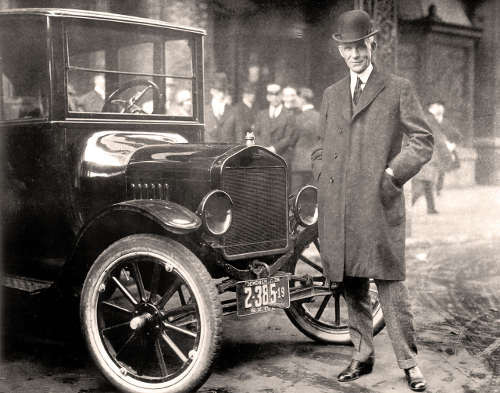
We are all concerned for our children’s future. Our persistent, urgent even, question to them is what they are going to do in their life. We tell them to “Reach for the stars”. Dream big! Set goals and strive for them! Aim for success!
Those are all noble ambitions, no doubt, all geared around and towards success. We push our youngsters to believe they must get to the top in the top professions. Success is the goal. However, we seem to forget that only a very few can possibly succeed and we do little and care little for those that do not succeed. As a result, many youngsters will be led to believe that they have failed. They did not reach the stars but fell to the earth with a heavy thud with all the certainty of gravity. Their dreams turned into a nightmare.
Many people have written and spoken, including this writer, that there is no such thing as failure and even those things that may be considered as failures are not such.
Henry Ford was more specific saying "There is no failure except the failure to serve one's purpose." That needs to be carefully noted. It does not say “except the failure to reach one’s goals”. Therefore, it is crucial that we understand that we must help our children firstly find their purpose, not fulfil their ambition. As the author Mark Twain famously stated, there are two important days in our lives: The day we are born and the day we find out why, in other words, the day we discover our purpose in life.
If they are going to learn anything significant at school, then young people must find their purpose, for, as was written in Ford News in 1923, “If today has no meaning, the past was a blank and the future is a chaos”. They must learn that as top priority at school otherwise there is no point in their whole education. So many people who leave school are lost in the world as they have little or no sense of purpose; they drift through life, moved by the tides and currents of modern thinking or advertising, by their moods and desires. Of course, they may say that their purpose is to make a fortune, be famous or gain a prestigious position. Their purpose, in their mind, is to fulfil their dreams. Yet all too often they fail to achieve that.
Leo Tolstoy, the Russian novelist, had a different perspective. “The sole meaning of life” he said, “Is to serve humanity.” Albert Einstein reached the same conclusion when he said that “Only a life lived in the service to others is worth living.” If our community, our country, is to develop and thrive, then we must teach young people to understand and apply that. Yes, we must help our youngsters find their purpose but, in Henry Ford’s words above, they must learn to “serve one's purpose”. They must commit to their purpose, and that purpose must be within the context of others.
Albert Schweitzer, the 1952 Nobel Peace Prize winner and German missionary, theologian and physician who spent fifty-two years as a missionary in Gabon declared, not from mere theory or theology, that “I don't know what your destiny will be, but one thing I know: the only ones among you who will be really happy are those who have sought and found how to serve.” We are doing our young people a gross disservice, therefore, if we do not teach them service.
The beautiful thing about having such a purpose is that, as Martin Luther King Jnr discovered, “Everybody can be great ... because anybody can serve. You don't have to have a college degree to serve. You don't have to make your subject and verb agree to serve. You only need a heart full of grace. A soul generated by love.” All the pupils in our schools can serve, no matter what class they are in, no matter what year they are in. What is more, he is saying there is no greater ambition than that for everybody can be great, not just the one or two who manage to succeed.
- Apple products set to use common charging point after EU deal
- Business opinion: Branding in the age of entrepreneurship and industrialisation (Part 17)
- Business opinion: Branding in the age of entrepreneurship and industrialisation (Part 17)
- Achieving employee engagement
Keep Reading
Thus, it is understandable that Martin Luther King Jnr had a different view to the people we mentioned at the start of this article, when he said that “Life's most persistent and urgent question is, 'What are you doing for others?’” We need to move away from the view epitomised years ago in a popular car sticker which read, “Surfing is life: the rest is details”.
Nowadays, youngsters might read that as “Surfing (the internet) is life; the rest is emails” but in truth, what schools need to be teaching, is that serving, not surfing, is life and the rest is retails. As in tennis, so in life: if we don’t get our service in, we will never get the point. It is time we did. It will certainly be to our advantage.
- Tim Middleton is the executive director of the Association of Trust Schools [ATS]. The views expressed in this article, however, are solely those of the author in his private capacity and do not necessarily represent the views of the ATS. Email: [email protected]
- website: www.atschisz










